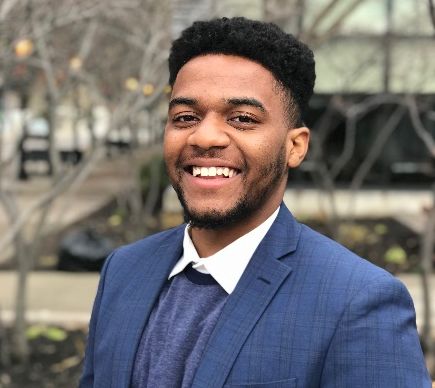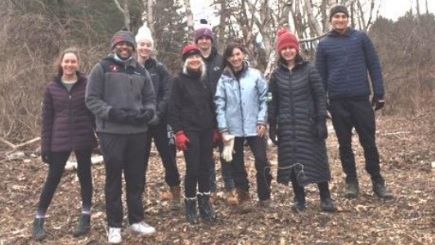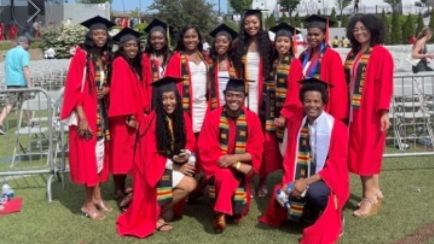I recently started working with the Wildlife Conservation Society (WCS) as a Water Quality Lab Technician at the New York Aquarium. This is my first job in the ecology/conservation field after graduating from college in May 2022. I work alongside three other amazing Water Quality Lab Technicians to analyze, report and address various water quality parameters (pH, salinity, ammonia, turbidity, etc.) for the vast multitude of aquatic animals living at the aquarium.
We work tirelessly with our veterinarians, animal keepers, and life support system technicians to ensure the animals are housed in optimal environments and the aquarium is running smoothly. I’m very grateful for the opportunity to work with the New York Aquarium and make a meaningful impact on the care of marine life living here.

Jordan Cox. Photo courtesy of Cordan Cox.
Growing up in Atlanta, Georgia, I always had a fascination with studying various types of wildlife and plant life. As far back as elementary school, I loved reading the Nature’s Children wildlife books that were offered at our school’s library and going on field trips to the Georgia Aquarium, Zoo Atlanta, and Fernbank Natural History Museum. I still enjoy these places when I visit home.
My desire to work in the field of ecology/conservation and my love for doing work in a lab started in high school with my AP Environmental Science class. Taking a trip to the Gwinnett County Wastewater Treatment plant and learning about the processes used to treat our wastewater to make it safe for animals in the river, along with the constant environmental assessments that were done by the technicians left me in awe.
Our other coursework—whether designing eco columns, testing lake water, or gathering data on the trees around us—cemented my interest in ecology.

Jordan with fellow volunteers with the Massachusetts Audubon Society on their Habitat Trails Day. Photo courtesy of Jordan Cox.
I joined my high school’s green team and was determined to become a scientist and make an impact. Moving forward into college and learning much more in-depth knowledge about our environment, climate change, and the field of conservation biology helped me realize this truly was the right career field for me.
As I progressed through school and into my first job, I have faced the challenge of recognizing that the field of ecology/conservation is a primarily Caucasian-American field. Coming from predominantly white educational institutions in high school and college, it had never shocked me to be the only African American in any setting.
However, I did notice in college while engaged in my ecology courses, that I was the only African American man in classes of 20-60 students. When in these kinds of spaces, which can be very daunting, I’m so thankful that my family is full of strong and successful African American men and women, whom I’m able to look up to. My family is a constant reminder to me that I can succeed in predominantly white spaces and to constantly strive for success in everything I do.
I personally believe the racial gap in conservation and environmental protection fields exists because these fields typically require advanced college degrees but do not necessarily come with salaries commensurate to those in other fields (medicine, IT, law) requiring the same levels of education.

Jordan on his graduation day from Boston University. Photo courtesy of Jordan Cox.
The past and current oppression of minorities in America due to systemic racism that has prevented wealth building, has streamlined people of color into these other fields that offer higher returns and led to a lack of involvement in the field of environmental protection. I believe this has been extremely damaging as we discuss how African Americans and other people of color are affected by environmental racism/ injustice.
Minorities are less likely to live near natural areas because they are among the first to be gentrified, resulting in higher housing costs, and making it more likely that minority residents will end up in areas suffering disproportionately from climate change and pollution. These issues often go unaddressed, because there are very few people involved in these decisions and the viewpoints of the African American community and other minority communities are often not addressed.
I hope that I can inspire more people like me to get involved in conservation and together we can bridge the racial gap of minorities in environmental protection. Whether that be getting involved with primarily African American conservation groups like Black Birders Week or Outdoor Afro, or pursuing a career in conservation as a Wildlife Keeper or Biologist.
Later in my life, as I advance in this field, I hope to make a more significant impact in the fight against climate change and environmental injustice and to make sure that the voices and concerns of African Americans and other minorities are considered when addressing these critical challenges.
